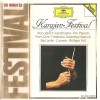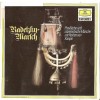传记
Life and work
Johann Strauss was the father of Johann Strauss II, Josef Strauss and Eduard Strauss, who had a son called Johann Strauss III, born in 1866. He also had two daughters, Anna, who was born in 1829, and Therese, who was born in 1831. His youngest son, Ferdinand, who was born 1834, lived only ten months. Strauss's parents (Franz Borgias Strauss (10 October 1764 – 5 April 1816) and Barbara Dollmann (3 December 1770 – 28 August 1811) were innkeepers (Zum heiligen Florian). Strauss had a Jewish grandfather, Johann Michael Strauss (1720–1800) who converted to Catholicism.
Tragedy struck his family as his mother died of 'creeping fever' when he was seven . When he was twelve, his father Franz Borgias Strauss was discovered drowned, possibly by suicide, in the Danube river. His guardian, the tailor Anton Müller, placed him as an apprentice to a bookbinder Johann Lichtscheidl; Strauss took lessons in the violin and viola in addition to fulfilling his apprenticeship. Contrary to a story later told by his son, Johann jun., he never ran away from his bookbinder apprenticeship and in fact successfully completed it in 1822. He also studied music with Johann Polischansky during his apprenticeship and eventually managed to secure a place in a local orchestra of Michael Pamer which he eventually left in order to join a popular string quartet known as the Lanner Quartet formed by his would-be rival Joseph Lanner and the Drahanek brothers, Karl and Johann. This string quartet playing Viennese waltzes and rustic German dances expanded into a small string orchestra in 1824.
He eventually became deputy conductor of the orchestra to assist Lanner in commissions after it became so popular during the Fasching of 1824 and Strauss was soon placed in command of a second smaller orchestra which was formed as a result of the success of the parent orchestra. In 1825, he decided to form his own band and began to write music (chiefly, dance music) for it to play after he realized that he could also possibly emulate the success of Lanner in addition to putting an end to his financial struggles. By so doing, he would have made Lanner a serious rival although the rivalry did not entail hostile consequences as the musical competition was very productive for the development of the waltz as well as other dance music in Vienna. He soon became one of the best-known and well loved dance composers in Vienna, and he toured with his band to Germany, the Netherlands, Belgium, England, and Scotland. The conducting reins and management of this 'Strauss Orchestra' would eventually be passed over to the hands of his sons variously until its disbandment by Eduard Strauss in 1901.
On a trip to France in 1837 he heard the quadrille and began to compose them himself, becoming largely responsible for introducing that dance to Austria in the 1840 Fasching, where it became very popular. It was this very trip (in 1837) which has proved Strauss' popularity with audiences from different social backgrounds and this paved the way to forming an ambitious plan to perform his music in England for the coronation of Queen Victoria in 1838. Strauss also adapted various popular melodies of his day into his works so as to ensure a wider audience, as evidenced in the incorporation of the Oberon overture into his early waltz, "Wiener Carneval" op. 3 and also the French national anthem "La Marseillaise" into his "Paris-Walzer" op. 101.
He also married Maria Anna Streim in 1825 in the parish church of Liechtenthal in Vienna. His marriage was relatively unstable as his prolonged absence from his immediate family due to frequent tours abroad led to a gradual alienation and he later took on a mistress, Emilie Trampusch in 1834 with whom he had six children. This personal decision marked Anna Strauss' conviction to further Johann Strauss II's first development as a composer as Johann senior previously forbade his sons to undertake music studies at any point of time. With Johann senior's open declaration of his paternity of a daughter born to Emilie, Maria Anna sued for divorce in 1844, and this effectively allowed Johann junior to actively pursue a musical career. Strauss I was a strict disciplinarian in the Strauss home called 'Hirschenhaus' better known in Vienna as the 'Goldener Hirsch' (The Golden Stag), and imposed his will on his sons to pursue careers that were not musically-related. Likewise, his brother Josef Strauss was destined for a military career whereas the younger Eduard Strauss was expected to join the Habsburg|Austrian consulate.
Despite family problems, he also toured the British Isles frequently and was always prepared to write novelty pieces for many charitable organizations there. His waltzes were gradually developed from a rustic peasant dance into one which posterity would recognize as the Viennese Waltz. They were written in three-quarter time with a short introduction; often with little or no reference to the later chain of five two-part waltz structure; usually appended with a short coda and concluded in a stirring finish although his son Johann Strauss II expanded the waltz structure and utilized more instruments than his father. While he did not possess a musical talent as rich as his eldest son's, nor a business mind as astute, he was among the handful of early waltz composers along with Joseph Lanner to actively write pieces with individual titles —with the view to boost sales of their sheet music— which enabled music enthusiasts to easily recognize those pieces . In fact, during his performances at the Sperl-Ballroom in Vienna, where he established his name, he actively pursued the concept of collecting a fixed entrance fee from the patrons of the ballroom instead of the old practice of passing around a collection plate where income is only guaranteed by the goodwill of the patrons.
Johann Strauss II often played his father's works and openly declared his admiration of them although it was no secret to the Viennese that their rivalry was intense, with the press at that time fueling it. Johann Strauss I himself refused to play ever again at the Dommayer's Casino, which offered his son his conducting debut, and was to tower over his son during his lifetime in terms of career advancement, although Strauss II was to eclipse him in terms of popularity in the classical repertoire. In 1846, Johann Strauss I was awarded the honorary title of K.K. Hofballmusikdirektor (Director of Music for the Imperial and Royal Court Balls) by Emperor Ferdinand I.
Strauss died in Vienna in 1849 from scarlet fever obtained from one of his illegitimate children. He was buried at the Döblinger cemetery beside his friend Joseph Lanner. In 1904, both of their remains were transferred to the graves of honour at the Zentralfriedhof. The former Döblinger Cemetery is now a Strauss-Lanner Park. Hector Berlioz himself paid tribute to the 'Father of the Viennese Waltz' by commenting that 'Vienna without Strauss is like Austria without the Danube'.





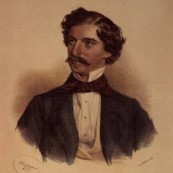

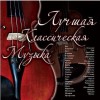
![Top 100 der Klassik [CD 5 of 5]](http://static.classicalm.com/repository/collection-cover/small/1368-img1372595835213275.jpg)
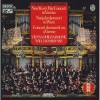
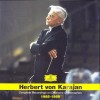
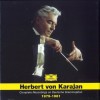
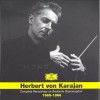
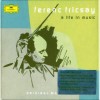
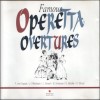
![Herbert von Karajan - Sternstunden der Musik [CD3of3]](http://static.classicalm.com/repository/disk-cover/small/3679-img1406716183842579.jpg)
